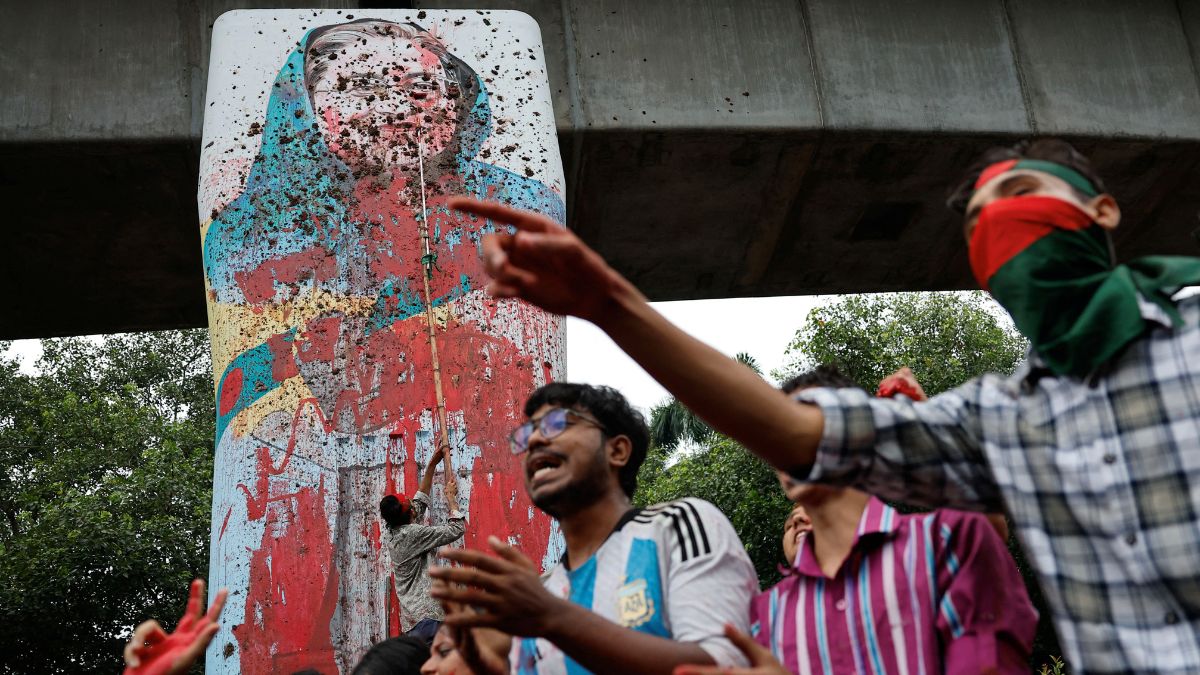The interim government of Bangladesh has decided to revoke all diplomatic passports, including those held by former ministers, Members of Parliament (MPs), and their family members from the Awami League government.
This move, which comes just two weeks after the fall of Sheikh Hasina’s government on August 5, marks a critical development in the South Asian nation’s political landscape.
The decision, announced by Md Mashiur Rahman, senior secretary of the Bangladeshi Home Ministry’s Security Service Division, has already set the wheels in motion, with the Department of Immigration and Passports beginning the necessary procedures.
What comprised this move?
Diplomatic passports, identified by their red cover, have long been issued to high-ranking government officials, including MPs, ministers, and their family members. These passports come with privileges, such as visa-free entry or visa on arrival in many countries, making international travel more accessible for holders.
With the fall of Hasina’s government, the interim administration decided to cancel these passports, including the one used by Hasina herself as she fled to India on August 5.
Also Watch:
Md Mashiur Rahman told Bangladeshi media, “We have already directed the Department of Immigration and Passports in this regard. They already started the process, and hopefully, the order will be issued soon.”
He further added that once the diplomatic passports of the primary holders are cancelled, the passports of their family members will also be automatically scrapped. For those holding a diplomatic passport, the process to obtain a new, ordinary passport will require them to first surrender their diplomatic passport.
Impact Shorts
More ShortsThe Home Ministry sources told local media that once the cancellation order is issued, former ministers and MPs currently abroad must surrender their red passports at the Department of Immigration and Passports (DIP) office in the respective countries or upon their return to Bangladesh.
Former Prime Minister Sheikh Hasina, who took refuge in India amid mass protests in Dhaka, is among those affected by this decision.
What are the types of passport in Bangladesh?
Bangladesh issues three primary types of passports: diplomatic, official, and ordinary. The red-covered diplomatic passport is the most privileged, issued to diplomats, top-ranking government officials, and their families. It provides the bearer with numerous benefits, including visa-free travel to many countries and visa on arrival in others.
The blue-covered official passport is issued to government employees and officials travelling on official business, while the green-covered ordinary passport is for regular citizens traveling internationally for purposes like vacation, study, or business.
The diplomatic passport has been a symbol of prestige and convenience for its holders. However, with the interim government’s decision to revoke these passports, many former officials may lose the ease of international travel they once enjoyed.
The cancellation of the red passport not only impacts the personal convenience of these individuals but also signals the government’s intent to strip away the privileges associated with their former positions.
What may be the impactions of the move?
The cancellation of diplomatic passports has broad implications, not just for the former government officials but also for the diplomatic relations between Bangladesh and India.
Bangladeshi media has reported that several former ministers and MPs have already been arrested, while others fled abroad before the government’s fall to evade arrest. With the cancellation of their passports, those abroad might face difficulties in their movements and could be forced to return to Bangladesh, where legal actions await them.
Bangladesh’s de facto foreign minister, Touhid Hossain, hinted at the possibility of Bangladesh seeking Hasina’s extradition from India. In an interview with Reuters, he mentioned that multiple criminal cases had been filed against Hasina since her ouster, and that Bangladesh may need her to “return to Bangladesh.”
He also acknowledged the diplomatic challenges this could pose for India, expressing confidence that India “would take care of it.”
Does this mean Hasina will have to come back to Bangladesh?
India and Bangladesh have an extradition treaty in place since 2013, which was amended in 2016 to facilitate the exchange of fugitives between the two countries.
Under this treaty, India is obligated to extradite individuals who are wanted for committing an extraditable offence, which includes crimes punishable by a minimum of one year of imprisonment. This includes financial crimes, murder, enforced disappearance, and other serious offences.
Also Read: Cases against Sheikh Hasina, aides pile up in Bangladesh, tally reaches 31
However, there are exceptions to the extradition rules. The treaty allows for the refusal of extradition if the offence is of a “political nature,” though this is limited by the nature of the offence.
In Hasina’s case, while she could claim political asylum, some of the charges against her, such as murder and enforced disappearance, are excluded from the definition of political crimes in the treaty.
Also Watch:
This could potentially lead to a request for her extradition being honoured, especially since a 2016 amendment to the treaty removed the requirement for Bangladesh to provide evidence of the offence committed.
Nevertheless, India could refuse the extradition request on several grounds, including the argument that the accusations against Hasina were not made “in good faith in the interests of justice.”
Also Read: Why Sheikh Hasina’s extradition to Bangladesh isn’t a realistic scenario
However, such a refusal could strain relations between India and the new government in Dhaka. New Delhi has remained silent about the diplomatic status that Hasina used to seek refuge in India, although it is widely understood that she used her diplomatic passport to leave Bangladesh.
With inputs from agencies


)

)
)
)
)
)
)
)
)



